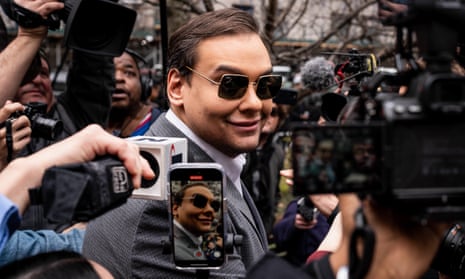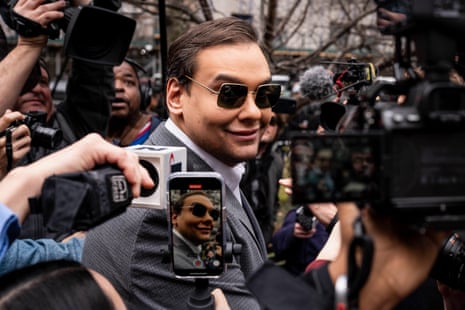Terry Vaughan Posted by Rex Features
For many Britons who watch Eurovision every year, the late Sir Terry Vaughan defined the contest. He commentated on broadcasts of the show for the BBC from 1971 to 2008, and when it was the UK's turn to host the event in 1998, Vaughan put on a live extravaganza for all of Europe. With a combination of poignant jokes, mocking performers, a blatant pro-British bias and a recommendation to always enjoy Eurovision with a strong drink, he turned the show into the highlight of the year for British TV viewers.
But like all good love stories, Vaughan's relationship with Eurovision has not always been easy. Over time, his comment became more cynical and less jocular. He eventually walked out of the concert in 2008 saying, “I don't want to be in charge of another fiasco.” Graham Norton has since become a BBC commentator.
The tension went both ways. Christer Björkman, Swedish producer of the 2016 contest, said that Wogan “totally ruined the Eurovision Song Contest” with his scathing remarks about the contestants: “He raised a whole generation of viewers to believe that this is a fun, kitsch show that has no actuality whatsoever. … Because of what Terry Wogan did, the UK made no effort.”
The Eurovision Committee, in their official announcement of Wogan's death, was kinder, though perhaps a bit euphemistic, when they paid tribute to Wogan after his death, calling him “without a doubt the most outstanding Eurovision commentator in history.”Terry Vaughan and Ulrika Jonsson represent Eurovision 1998
What went wrong? How did Vaughan fall in love with Eurovision and define it for a nation only to be disappointed and even resented by other countries?
It all started in 1971 when he first presented a radio commentary for the competition to the BBC (the competition itself first started in 1956). Vaughan's slightly caustic, often hilarious jokes remain in the memory for a long time. He is known to have sparked ire in Denmark after he called the two Danish hosts of the pageant “The Little Mermaid and Dr. Death… that couple will kill you”. Describing a 1997 Russian recording, he assured viewers that “no, it's not Rita from Coronation Street”. In 2007, he opened the show with the words, “Who knows what a hell of a future lies ahead? Actually, I know. I saw the rehearsals.”
Importantly, Vaughan was also always willing to point out if he thought a song was good. For decades, he believed that the best songs tend to win, and was known to say at the beginning of a song, “This one's good” if he liked it.

In 1997, Vaughan was interviewed by Clive James about why he keeps commenting. He succinctly summed up his Eurovision philosophy: “It should be bad, and the worse it is, the merrier,” he said and stated that the real fun comes from “mockery at foreigners.”
He called ardent Eurovision fans “anoraks for men” who “hate me with a deep and unchanging hatred”. But nevertheless, he emphatically stated that he loves the Eurovision Song Contest, despite calling it “incredibly terrible”.
He was right that many Eurovision fans strongly disagree, to put it mildly. Thousands of fans across Europe and beyond constantly express their sincere love for the signature Eurovision musical style: a powerful style of pop sometimes known as Schlager that combines simple, catchy lyrics with a danceable backing track. For a large number of fans, music is serious, and competition is no laughing matter.
Vaughan's trouble was that after the millennium, the Eurovision Song Contest began to take itself even more seriously. Budgets skyrocketed, and the production became more slick than sweetly trashy. The winners tended to be those that could get a lot of support from neighboring countries (“And Ukraine just wanted to be absolutely sure that oil and electricity were coming through,” Vaughan remarked when Ukraine awarded Russia the maximum number of points in 2007. ), or pure Schlager songs with a trick or story behind them.
Just having a decent song wasn't enough anymore. Ridicule of foreigners was no longer a sport, Britain had less of a chance of winning than ever, and the whole competition seemed to change beyond recognition. Vaughan didn't like it.
The final straw came during the 2008 contest when Britain's Andy Abraham finished in last place. "I think Andy Abraham gave the performance of a lifetime with a song that certainly deserved a lot more points than it did when you look at the points that Spain, Bosnia and Herzegovina got – some really ridiculous songs, " ; Wogan said. When he withdrew from the show the following year, he said it was because “it's not a music competition anymore.” >
But even after he declined to comment in 2008, Vaughan couldn't resist venting his prickly tongue. He denounced the 2014 Austrian winner, bearded drag queen Conchita Wurst, for turning the pageant into a “freak show”.
Perhaps it would have been better if Vaughan's old-fashioned stance had gone when she left; as the competition becomes more of a sincere celebration of unity (particularly after the war in Ukraine), Vaughan's approach of “taunting foreigners” seems to belong to a very different time.
The current Eurovision Voice in the UK, Graham Norton, always only praised Vaughan. Following Vaughan's death in 2016, Norton toasted his predecessor lovingly during a broadcast. Responding to negative comments about Vaughan's attitude towards Eurovision, Norton said that “Sir Terry Vaughan will always be associated with Eurovision. He took on a role that wasn't really a role at all and completely turned it into the work that it is today.”
When Norton first commented in 2009, he began the broadcast by saying: ” I know I miss Terry too.”
Eurovision may change, but it had a golden era of stupidity and self-importance, and Vaughan was always reliable. And when it turned into something else, he had the good sense to let it go. The history of Eurovision and Sir Terry Vaughan may have been turbulent, but it was a love story until the very end.




























































Recent Comments